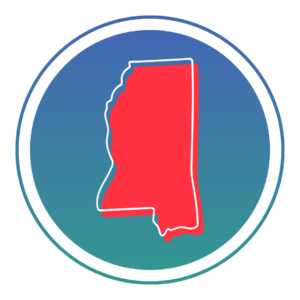State of Justice: August Keep Your Eyes On
 Alaska: The Alaska Supreme Court weighing citizens’ right to challenge state’s predator control program
Alaska: The Alaska Supreme Court weighing citizens’ right to challenge state’s predator control program
The Alaska Supreme Court will determine whether an Anchorage attorney, Michelle Bittner, has standing to challenge the state’s predator control program. The program was intended to help maintain the state’s Mulchatna caribou population by permitting the state to kill caribou predators like bears and wolves. Bittner claims a thriving wildlife ecosystem, including predators, is central to her identity as an Alaskan. A lower court dismissed the challenge, finding citizens had no authority to challenge the program. While this case focuses on the ability to challenge the program, there are other lawsuits challenging the program itself. Wildlife conservation groups filed a separate case in lower court claiming the state rushed the program and did not follow scientific evidence that predators are not causing the caribou population’s decline. That case is currently before the same judge that dismissed Bittner’s challenge.
Alaska: Alaska Supreme Court hears arguments on personal watercraft ban near Homer
Following the 2020 repeal of the personal watercraft ban by Department of Fish and Game Commissioner Doug Vincent-Lang, non-profit groups quickly challenged the repeal. The personal watercraft ban, originally instated in the 2000s, prohibited the use of personal watercrafts like jet skis from being used in conservation areas. The groups challenging the repeal say the commissioner had no authority to repeal the ban and that the state has a duty to protect natural conservation areas. They also claim the repeal of the ban was done without an opportunity for public input and analysis. The state argues, however, that the commissioner has sole authority over the regulations and its interpretations.

Arizona: Arizona judge rejects wording for a state abortion ballot measure. Republicans plan to appeal
An Arizona judge ruled against GOP lawmakers’ attempt to use the term “unborn human being” in voter pamphlets for a ballot measure expanding abortion access. Maricopa County Superior Court Judge Christopher Whitten called for neutral language, rejecting the emotionally charged terminology. The measure seeks to extend abortion access from 15 weeks to 24 weeks and prevent restrictive state laws. Arizona for Abortion Access, which collected over 800,000 signatures, and Attorney General Kris Mayes support using neutral terms like “fetus” to ensure clear, objective voter information.
 Colorado: New Colorado Supreme Court Chief Justice sworn in
Colorado: New Colorado Supreme Court Chief Justice sworn in
Justice Monica Márquez was sworn in as chief justice of the Colorado Supreme Court at the end of July. Márquez is the court’s first Latina chief justice and first openly LGBTQ+ justice. She will serve as chief justice for three years. Márquez first joined the court in 2010 after Gov. Bill Ritter (D) appointed her to the court. Prior to joining the bench, Márquez worked in private practice and then in public service, holding multiple positions in the Colorado Attorney General’s office.
Colorado: Colorado justices take on major topics, 10th Circuit divided on pot controversy
The Colorado Supreme Court is hearing cases that could impact the state’s open meetings laws. Under current law, governing bodies are allowed to “cure” any violations from past meetings to the open meetings laws by holding a new meeting that meets the legal requirements. The court will also hear a lawsuit that will impact the ability to hold fossil fuel emitters like ExxonMobil accountable for the financial consequences of climate change.
 Florida: State has only days to respond in court fight over abortion amendment financial statement (Florida Supreme Court to move quickly on abortion ‘statement’)
Florida: State has only days to respond in court fight over abortion amendment financial statement (Florida Supreme Court to move quickly on abortion ‘statement’)
The Florida Supreme Court is holding expedited proceedings around the state’s abortion amendment set to appear on the November ballot. The proceedings are challenging a financial impact statement, an explanation of the potential impacts a proposed amendment would have on state revenues and budgets, that must appear on the ballot will the proposed amendment. The group supporting the amendment, Floridians Protecting Freedom (FPF) are challenging the impact statement written by conservative legislators. FPF claims the current impact statement is inaccurate and politicized. These proceedings are also tied to another legal challenge to the amendment itself led by conservative state leaders. In both cases, the court gave all parties less than a week to respond.
 Indiana: Attorneys for Indiana death row inmate call for Supreme Court to block execution
Indiana: Attorneys for Indiana death row inmate call for Supreme Court to block execution
Attorneys for Joseph Corcoran, a death row inmate convicted of murdering four people in 1997, requested the Indiana Supreme Court to block his execution. They argue Corcoran’s paranoid schizophrenia should bar him from the death penalty, citing that 11 states have banned it, and neighboring states do not execute the severely mentally ill. Gov. Eric Holcomb and Attorney General Todd Rokita have requested an execution date, stating Corcoran’s appeals are exhausted and the state has the necessary drugs for lethal injection.
Kentucky: Kentucky Supreme Court to hear open records case against Fish and Wildlife commission 
The Kentucky Supreme Court is set to hear a case that will determine if text messages on personal cell phones used for government business are considered public records under the state’s open records law. This follows a ruling by the Court of Appeals that classified such messages as public records. The case, brought by the Kentucky Open Government Coalition against the Department of Fish and Wildlife Resources, arose after the commission did not release requested messages and emails. The outcome could impact transparency requirements for public officials and was also a factor in failed legislation aiming to address these issues.

The Maine Supreme Court’s plea to large law firms for help with the state’s worsening public defender crisis has seen minimal response. Despite Chief Justice Valerie Stanfill’s urgent call in August 2023, only two attorneys from the seven largest firms took indigent defense cases. The crisis, exacerbated by pandemic-related backlogs, has left nearly 1,000 cases without legal representation. Critics argue that criminal defense requires specialized expertise, which many attorneys lack, complicating efforts to address the state’s growing indigent defense needs.
Maryland: Lawmakers, advocates, attorney general defend Child Victims Act in Maryland Supreme Court 
Maryland’s highest court will hear oral arguments on September 10 for a case combining three separate challenges to the Child Victims Act. Institutions like the Catholic Archdiocese of Washington and other entities that have been sued since the 2017 passage of the law are challenging the act and the lawsuits brought against them. They contend they are immune from any lawsuits resulting from the act, which extends the period that survivors can sue their abusers to their 38th birthday. They argue the act is a statute of repose and they have a right to immunity. However, victims’ rights organizations, Maryland state legislators, and the state attorney general are arguing the law is a statute of limitations that the legislature may change at any time.
Maryland: Ballot question that would pay new Baltimore parents $1,000 headed to state Supreme Court
The Maryland Supreme Court will decide the constitutionality of Baltimore’s Baby Bonus Bump ballot initiative. The initiative, created by the Maryland Family Alliance, proposes paying $1,000 to every family once for every child born or adopted and gained over 10,000 signatures in support. Baltimore city officials, while sympathetic towards the initiative’s central purpose, are challenging the ballot initiative. Officials claim it violates state law by encroaching too much on legislative authority and that the city has no funds for it. The court will rule by September.
 Minnesota: Minnesota Supreme Court bows out in Michelle MacDonald case
Minnesota: Minnesota Supreme Court bows out in Michelle MacDonald case
All seven justices on the Minnesota Supreme Court recused themselves from a case involving challenges by Michelle MacDonald and Eric Anunobi on their exclusion from the ballot. The recusal was ordered to prevent any appearance of bias. Five appeals court and district court justices will temporarily take over the case, with court of appeals Judge Francis Connolly acting as chief justice. The legal issue revolves around election officials’ decisions on candidate qualifications. MacDonald, whose law license was suspended by the supreme court, contends that the state constitution’s requirement for judicial candidates is met by being “learned in the law,” and does not need to be licensed. Anunobi argues he was improperly barred due to issues with his bar association credentials.
Mississippi: Why Black Voters Want To Change Mississippi’s 1987 Supreme Court Map 
Black Mississippi voters are challenging the state’s supreme court districts in federal court. Voters are asking the court to create a majority-Black district for the supreme court. The districts have not been drawn since 1987. Despite making up 40% of the population, there have only been four Black justices in the 100 years since the court began holding elections. All were appointed to their first term, not elected in an open contest, and all were from District 1, Place 2. While the state alleges that District 1 has elected both white and Black judges, voters point to a 2020 election in which a Black court of appeals judge sought election to the bench but lost despite gaining 48% of the vote. Black voters in that district make up about 49% of the district but were so diluted by while voters in the district they could not get their preferred candidate elected. A central question in this case is also if federal courts have power to redraw judicial districts in addition to legislative districts.
The state employees union is challenging a recent Committee on Industrial Relations decision requiring them to return to in-person work in state court. The union is asking the court to determine if remote work is covered under their collective bargaining agreement and if the state was required to negotiate bringing workers back in person with the union or covered under the CBA’s management’s rights clause. At the same time, the union is preparing for contract renegotiations and will prioritize remote work accommodations.
Nevada: Nevada AG appeals to state high court in effort to revive fake electors case
The Nevada Attorney General’s office is asking the state Supreme Court to uphold indictments against six defendants involved in the fake electors scheme to declare Donald Trump the winner of Nevada’s 2020 election. Following a district court decision dismissing the case, finding Las Vegas as the wrong venue, Attorney General Aaron Ford confirmed the office appealed that ruling. The defendants, including state GOP chairman Michael McDonald, face felony charges with penalties of up to five years in prison.
 New Hampshire: New Hampshire challenges “unjust” Massachusetts gun laws over impact on residents who cross state lines
New Hampshire: New Hampshire challenges “unjust” Massachusetts gun laws over impact on residents who cross state lines
New Hampshire and Massachusetts are facing off in the latest legal battle challenging Massachusetts’ gun control laws following the arrest of a New Hampshire man in Massachusetts for possessing a gun without a state permit. Current law requires all gun owners to have the proper licenses, including out of state owners obtaining nonresident licenses. The New Hampshire Attorney General is challenging this law, claiming it is an infringement on New Hampshire citizens’ rights. Massachusetts officials maintain they are applying and enforcing the law equally. This case could have deep implications for jurisdiction and applicability of state laws over non-state residents. Oral arguments are scheduled for September 9.
North Carolina: Invited Guests Only 
A North Carolina judge has denied a newspaper’s request for an audio recording related to a controversial gag order in a juvenile court case. The judge had previously ordered the seizure of a reporter’s notes and barred the reporter from discussing court proceedings, citing the need to protect children’s privacy. Despite acknowledging that juvenile courts are open to the public, the judge maintained that journalists must inform court officials before attending. The newspaper plans to appeal the decision, emphasizing concerns over transparency and due process.
Ohio: Divorced couple’s fight over IVF-created embryos heads to Ohio Supreme Court 
The Ohio Supreme Court will determine a divorced couple’s rights to their IVF embryos. Prior to their divorce, the couple underwent IVF but did not use the embryos, meaning the ex-wife could now access the embryos to get pregnant. However, their contract states that in the case of separation, neither can use the embryos without the other’s permission. A lower appeals court found in favor of the ex-wife, saying her reproductive freedom outweighs any “procreational autonomy rights” the ex-husband has. The supreme court will now test the bounds of Issue One, a recently passed ballot initiative protecting individuals’ rights to reproductive freedom.
Pennsylvania: Pennsylvania Supreme Court To Hear Arguments Over 2011 Death Of Philadelphia Teacher Ellen Greenberg 
The Pennsylvania Supreme Court will hear arguments regarding the 2011 death of Ellen Greenberg, a Philadelphia teacher found with over 20 stab wounds, initially ruled a suicide. Her family argues it was a homicide and claims the investigation was mishandled. The court will determine whether executors of an estate can challenge a death certificate’s ruling. Testimony from a neuropathologist suggests at least one stab wound was inflicted post-mortem. The Chester County District Attorney’s Office is currently handling the investigation.
South Carolina: Alex Murdaugh could get new murder trial after South Carolina Supreme Court agrees to hear jury tampering appeal 
The South Carolina Supreme Court has agreed to directly review Alex Murdaugh’s appeal concerning alleged jury tampering. Murdaugh’s legal team argues that the case involves crucial public interest and legal principles and is seeking to overturn an earlier ruling that denied a new trial. The appeal centers on claims that former Colleton County Clerk Rebecca Hill influenced jurors with improper comments. Murdaugh, convicted of murdering his wife and son, is currently serving two life sentences and faces additional federal charges for financial crimes.
Texas: Texas Supreme Court aims to close ‘justice gap’ for low-income Texans 
The Texas Supreme Court, the state’s highest court for civil appeals, recently proposed changes to the state’s rules defining and limiting legal services. The new proposed rule allows paraprofessionals and court access assistants to provide some legal services. The court hoped this would answer recent calls for help from legal aid and advocacy organizations across the state pointing to massive disparities in access to legal representation for low –income and rural residents.
Texas: Judge Christine Hortick says she’ll take fight over Bexar County rules to Texas Supreme Court
Bexar County Judge Christine Hortick is challenging the county’s scheduling system for pretrial hearings before the state supreme court. Under the current centralized docket system, pretrial hearings are assigned to different judges and Hortick claims, opens the door for judge shipping during the pre-trial phase. Hortick seeks to only hear cases from her district from start to finish.
 Utah: Phil Lyman asks Utah Supreme Court to throw Gov. Spencer Cox out of office
Utah: Phil Lyman asks Utah Supreme Court to throw Gov. Spencer Cox out of office
Utah Rep. Phil Lyman has requested that the Utah Supreme Court remove Gov. Spencer Cox from office and declare Lyman the Republican gubernatorial nominee after losing to Cox in the June 25 primary. Lyman, acting as his own counsel, argues that he rightfully won the nomination by securing over 60% of the delegate vote at the GOP nominating convention. He contends that Cox’s qualification through signature collection, though legal under Utah law, violates internal party rules. Cox’s campaign criticized the lawsuit as an attack on democratic principles.
Utah: Utah Supreme Court weighs Colby Jenkins’ ballot postmark challenge
Colby Jenkins, a congressional candidate, has taken his case to the Utah Supreme Court, challenging the state’s postmark deadline for returning mail-in ballots as unconstitutional. Jenkins lost the Republican primary for Utah’s 2nd Congressional District by just 176 votes to Rep. Celeste Maloy. He argues that ballots with late postmarks, which may have been delayed due to mail processing in Las Vegas, should be counted. The state contested Jenkins’ standing to sue and defended the legality of the postmark deadline. The court has yet to issue a ruling.
 Wisconsin – Wisconsin Capitol Police decline to investigate leak of state Supreme Court abortion order
Wisconsin – Wisconsin Capitol Police decline to investigate leak of state Supreme Court abortion order
The Wisconsin Capitol Police have chosen not to investigate the leak of an order issued by the Wisconsin Supreme court. Chief Justice Annette Ziegler expressed her intent to explore other avenues to identify the source of the leak, which involved a draft order related to a Planned Parenthood case seeking to establish a state constitutional right to abortion. Despite the draft being leaked in June, the court later issued the official order. While Ziegler remains committed to finding the source, she has not provided details on the alternative measures she is pursuing. probe the leak of a state Supreme Court abortion order, due to concerns about a possible conflict of interest linked to their association with the Governor’s office.
Wisconsin – WIAA petitions State Supreme Court to review Hayden Halter title
The Wisconsin Supreme Court will decide if then-Waterford wrestler Hayden Halter may retain his 2019 wrestling title following a multiyear battle within the Wisconsin Interscholastic Athletic Association (WIAA). The court accepted a petition from the WIAA asking the court to step in and review a lower court decision. Halter initially was suspended from the Southern Lakes Conference tournament following unsportsmanlike conduct and was prohibited from participating in the final match. After Halter’s family fought the suspension, they were able to get him back in the postseason tournament. WIAA appealed that decision in the circuit court and won. However, Halter’s family appealed that case again and won. Now, the supreme court will determine what will happen with Halter’s title.


